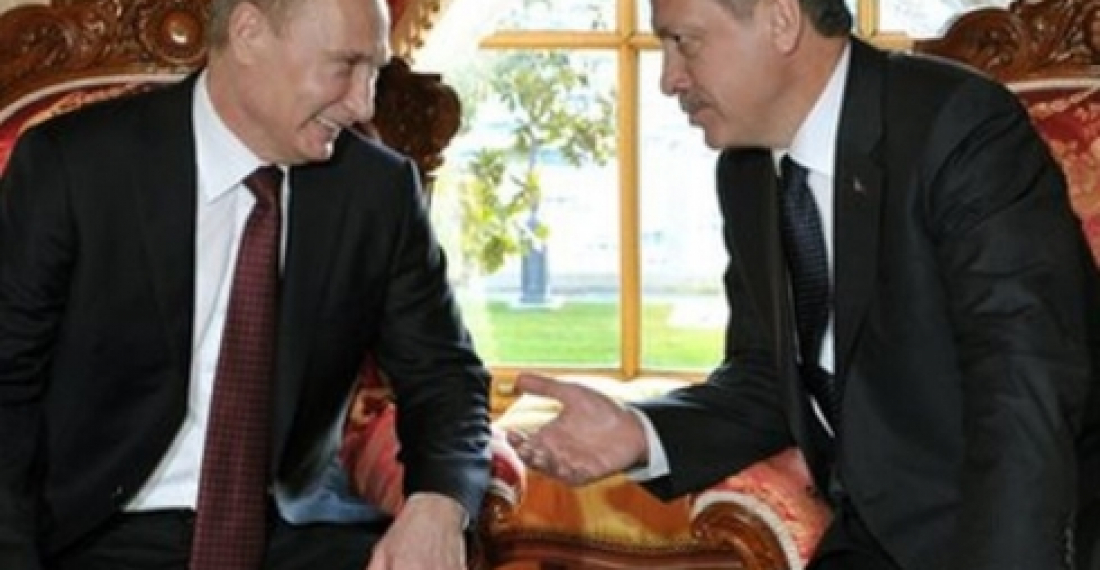Russian President Vladimir Putin starts a visit to Turkey on Monday (1 December) where he will participate in the fifth session of the High-Level Russian-Turkish Cooperation Council. The visit is considered an important one for both countries. Whilst there is no shortage of differences between the two governments both hope that areas of mutual self interest will enable the two countries and their leaders to find a common language.
One such area is trade, where both sides see the possibility of mutual benefit. Putin told the Turkish state-run Anadolu Agency last week,
"Hopefully, together we will be able to increase our mutual trade and enhance the quality of investment cooperation for the benefit of the peoples of Russia and Turkey. We have already agreed with Recep Tayyip Erdoğan that we can bring our mutual trade up to $100 billion". Putin added that "Turkey has been and remains an important foreign trade partner for Russia. In 2013, our bilateral trade turnover reached $32.7 billion. The accumulated Russian direct investments in Turkey exceed $1.7 billion, and similar Turkish investments in Russia are close to $1 billion. We are both interested in maintaining this positive trend".
Putin said Russia could increase its trade in foodstuffs with the country. He also proposed new collaboration opportunities in industry, specifically in the aerospace sector.
"In terms of volume, Turkey is the second largest buyer of Russian natural gas after Germany, which is delivered through the ‘Western corridor' with transit through Ukraine, Moldova, Romania and Bulgaria, and through the Blue Stream gas pipeline. Last year, Russian gas supplies to Turkey reached 26.6 billion cubic meters, and this year, most likely, will probably exceed this amount," Putin stated.
He noted Russia had a clear understanding of how important Russian energy resources are for Turkey's development.
"That is why we always respond positively to any appeals regarding Russian natural gas exports. In October, we reached an agreement in principle on increasing the annual supply through the Blue Stream pipeline from 16 billion to 19 billion cubic meters and on the engineering works that therefore need to be done. Our experts are keeping a close [eye] on this matter," he said.
This notwithstanding, Turkey and Russia have important differences on foreign policy matters, including their attitude to the governmet of President Assad in Syria, which Turkey seeks to replace. The two countries have also outstanding issues related to the Turkish minority in Crimea, whose rights have become under pressure since the territory was annexed by Russia earlier this year.
It is expected that during their meetings Putin and Erdogan will also discuss the situation in the South Caucasus, and particularly the Nagorno-Karabakh conflict. Turkey is a vocal supporter of Azerbaijan whilst Russia is a military and economic patron of Armenia. Neither Russia nor Turkey however want an escalation of the current conflict and have been calling on their allies to exercise restraint.
Both Russia and Turkey have become much more assertive in pursuing their policies in the Near and Middle East and Eurasia in recent years and months. This has often been at the expense of one over the other. The visit of Putin to Turkey will provide an opportunity to assess the extent to which both sides are ready to compromise.
source: commonspace.eu with Anadolu News Agency, Hurriyet Daily News and other media outlets.
photo: President Putin of Russia and President Erdogan Of Turkey (archive picture).







